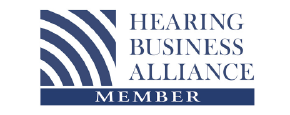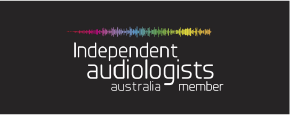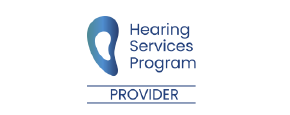Are you looking for a hearing test in Burpengary?
Are you having difficulty communicating? Our expert audiologists at Hearing Help can help improve your hearing clarity. Book your consultation today and reconnect with the sounds and people you love!
Hearing Test in Burpengary Brisbane
Are you looking for a Hearing Test in Burpengary? We are conveniently located within the Newport Physio and Health clinic at Newport Marketplace. We offer comprehensive hearing tests in nearby Newport, serving residents of Burpengary and surrounding areas. Their team of experienced audiologists and hearing specialists utilise state-of-the-art technology to deliver accurate diagnoses and effective treatments. Regular hearing tests are crucial for identifying potential issues and promoting overall well-being. Hearing Help‘s client-centered approach and commitment to ongoing education ensure personalised care for adults and children over four years old. By understanding the importance of hearing health and the process of a hearing test, individuals can take proactive steps towards a healthier future.
About Hearing Help
As a dedicated provider of hearing health services, Hearing Help is a reputable organisation committed to delivering personalised care and solutions for individuals experiencing hearing difficulties. With a team of experienced audiologists and hearing specialists, Hearing Help offers comprehensive hearing assessments, expert advice, and tailored treatment plans to address unique hearing needs.

Hearing Help is equipped with state-of-the-art technology and facilities, ensuring accurate diagnoses and effective treatment options. Their services include hearing tests, hearing aid fittings, and ongoing support to ensure optimal hearing outcomes. The team at Hearing Help prioritises patient-centered care, taking the time to understand individual concerns and preferences to deliver customised solutions.
With a strong commitment to staying at the forefront of hearing health advancements, Hearing Help’s professionals engage in ongoing education and training to provide the most effective and innovative treatments available. By combining expertise, technology, and personalized care, Hearing Help aims to empower individuals with hearing difficulties to regain confidence and improve their overall quality of life.
Why Choose Hearing Help?
Hearing Help offers comprehensive hearing services including hearing tests, tinnitus assessments, and hearing aid fittings in the surrounding areas of Newport 4020 Brisbane, providing client-centred care with experienced audiologists. Their services include hearing assessments for both adults and children over four years old, and they are accredited under the Hearing Services Program for fully subsidised assessments for eligible pensioners and veterans.
Importance of hearing health and regular hearing tests
Maintaining good hearing health is crucial for overall well-being, and regular hearing tests play a vital role in achieving this. Hearing loss can have a significant impact on daily life, affecting communication, relationships, and even mental health. By having regular hearing tests, individuals can identify any potential issues early on, allowing for prompt treatment and prevention of further damage. Moreover, hearing tests can also help detect underlying health conditions, such as diabetes, high blood pressure, and certain types of tumors, making them an essential part of overall health check-ups. In Burpengary, residents can take proactive steps towards protecting their hearing health by scheduling regular hearing tests with a qualified audiologist or hearing specialist.
What is a Hearing Test?
Conducted by an audiologist or hearing specialist, a hearing test is a comprehensive assessment that evaluates an individual’s ability to hear and process sounds. The primary goal of a hearing test is to determine the presence, type, and degree of hearing loss. This evaluation is crucial in identifying potential hearing problems, which can significantly impact an individual’s quality of life.
A hearing test typically involves a series of assessments, including a thorough medical and hearing history, a visual examination of the ear, and a battery of tests designed to evaluate hearing function. These tests may include assessments of sound detection, sound localisation, and speech understanding. The results of these tests provide valuable information about an individual’s hearing status, enabling the audiologist or hearing specialist to diagnose and manage hearing-related disorders. By understanding the nature and extent of hearing loss, individuals can receive appropriate treatment and take steps to mitigate its impact on their daily lives.
Types of Hearing Tests
What types of assessments can be expected during a comprehensive hearing evaluation, and how do they contribute to an accurate diagnosis of hearing loss or related disorders? A comprehensive hearing evaluation typically includes a range of assessments to evaluate an individual’s hearing threshold, middle ear function, and auditory processing abilities. Pure-tone audiometry, bone conduction testing, and speech audiometry are standard assessments used to determine the degree and type of hearing loss.
Tympanometry and acoustic reflex testing evaluate middle ear function, while otoacoustic emission testing assesses cochlear function. Other specialised assessments, such as auditory brainstem response (ABR) testing and electrocochleography, may be used to diagnose auditory nerve or inner ear disorders. Behavioral assessments, like speech-in-noise testing, can provide valuable information on an individual’s ability to process speech in challenging listening environments. By combining the results of these assessments, audiologists can accurately diagnose and categorise hearing loss, and develop effective treatment plans to address the individual’s specific needs. A comprehensive evaluation provides a thorough understanding of an individual’s auditory system, enabling targeted interventions and improved treatment outcomes.
Preparing for Your Hearing Test
To ensure a smooth and accurate assessment, it is essential to prepare for your hearing test. Knowing what to expect and understanding the process from arrival to completion can help alleviate any anxiety or uncertainty. In this section, we will outline the key aspects of preparing for a hearing test, including the duration of a typical test and valuable tips to help you prepare.
What to Expect
A comprehensive hearing test at our hearing clinic typically begins with a detailed discussion of your medical and hearing history to help our audiologists understand your unique needs. This discussion will cover any previous hearing tests, medical conditions, and concerns you may have about your hearing. It’s essential to be as open and honest as possible during this discussion to ensure our audiologists have a thorough understanding of your situation.
Our audiologists are experienced professionals who understand the importance of making you feel comfortable and at ease. You can expect a friendly and empathetic approach throughout the entire process. We’ll take the time to address any questions or concerns you may have, ensuring you’re fully informed and prepared for the test. By understanding what to expect and being prepared, you’ll be able to get the most out of your hearing test and take the first steps towards better hearing health.
Description of the process from arrival to completion
Upon arriving at our hearing clinic for your scheduled hearing test, you will begin a thorough and streamlined process designed to assess your hearing health and address any concerns you may have. Our friendly reception staff will greet you and ask you to complete a brief questionnaire to gather some personal and medical information. This will help our audiologists understand your hearing history and any relevant medical conditions.
Next, one of our experienced audiologists will invite you into a consultation room to discuss your hearing concerns and the purpose of the test. They will then use specialised equipment, such as an otoscope, to visually examine your ears and check for any blockages or abnormalities. Following this, you will be seated in a soundproof room for the hearing test, where you will be asked to respond to a series of sounds and word recognition tasks. Our audiologists will then analyse the results and discuss the findings with you.
Duration of a typical hearing test
Conducting a thorough hearing test typically requires about 30-60 minutes of your time, allowing our audiologists to carefully assess your hearing health and address any concerns you may have. This timeframe enables us to conduct a comprehensive evaluation of your auditory system, identifying any hearing loss, disorders, or conditions that may be affecting your ability to hear.
During this period, our experienced audiologists will employ a range of assessment tools and techniques, including otoscopy, tympanometry, and pure-tone audiometry. These tests are designed to evaluate the integrity of your ear canal, eardrum, and middle ear, as well as your ability to detect sounds at various frequencies.
Tips for preparing for a hearing test
Preparing for your hearing test involves taking a few simple steps to ensure accurate results, including avoiding exposure to loud noises and refraining from using earplugs or earmuffs for at least 24 hours prior to the test. This allows your ears to return to their natural state, providing an accurate representation of your hearing abilities.
Additionally, it is recommended to avoid listening to music through headphones or earphones for at least 24 hours prior to the test, as this can affect the results. Furthermore, if you have a cold or sinus infection, it is best to reschedule your appointment as this can impact your ability to hear.
On the day of the test, arrive 10-15 minutes prior to your scheduled appointment to complete any necessary paperwork. Be prepared to provide your medical history and discuss any concerns or symptoms you are experiencing. By taking these simple steps, you can ensure that your hearing test results are accurate and reliable, allowing your audiologist to provide the most effective treatment plan.
The Hearing Test Procedure
To fully assess hearing function, the hearing test procedure at our hearing clinic involves several stages. The process typically begins with an initial consultation, where patients meet with an experienced audiologist to discuss their symptoms and medical history. During this consultation, the audiologist will gather valuable information to inform the subsequent testing and ensure a comprehensive assessment.
Initial Consultation
During the initial consultation at our hearing clinic, a comprehensive hearing test procedure is undertaken to assess an individual’s auditory function and identify any potential hearing difficulties. This assessment typically begins with a visual examination of the ear canal and eardrum using an otoscope. This allows our audiologists to check for any blockages, such as earwax, that may be contributing to hearing difficulties.
Following the visual examination, a series of hearing tests are conducted in a soundproof room to assess an individual’s ability to detect different frequencies and volumes. These tests may include pure tone audiometry, bone conduction testing, and speech audiometry. The results of these tests are then recorded on an audiogram, which provides a visual representation of an individual’s hearing thresholds. This information is used to identify any hearing difficulties and inform the development of a personalised treatment plan. Our audiologists use the latest technology and techniques to ensure accurate and reliable results.
Discussion with an audiologist about symptoms and medical history
As part of the comprehensive hearing test procedure, a detailed discussion with an audiologist about an individual’s symptoms and medical history is undertaken to gather valuable information that informs the assessment and treatment process. This conversation allows the audiologist to understand the individual’s concerns, identify potential causes of hearing difficulties, and tailor the assessment to meet their specific needs.
During this discussion, the audiologist will typically inquire about the individual’s symptoms, such as the nature and duration of their hearing difficulties, any episodes of dizziness or vertigo, and the impact of their symptoms on daily life. The audiologist will also ask about the individual’s medical history, including previous ear problems, head injuries, and exposure to loud noises. Furthermore, they will explore the individual’s family history to determine if there may be a genetic component to their hearing difficulties. Gathering this information enables the audiologist to develop a comprehensive understanding of the individual’s situation, making it possible to provide more accurate diagnoses and effective treatment recommendations.
Conducting the Tests
Following the discussion with the audiologist, a series of tests are conducted to assess the individual’s hearing thresholds, middle ear function, and auditory processing abilities. The first test is typically an otoscopy, where the audiologist visually examines the ear canal and eardrum using an otoscope to check for any blockages, wax build-up, or other abnormalities. Next, a tympanometry test is performed to assess middle ear function by measuring the movement of the eardrum and the reflexes of the middle ear muscles.
The audiologist then conducts a pure-tone audiometry test to determine the individual’s hearing thresholds, where the individual is required to respond to sounds of varying frequencies and intensities. Speech audiometry tests are also conducted to assess the individual’s ability to understand speech in quiet and noisy environments. Additional tests, such as auditory evoked response testing or auditory processing assessments, may be performed if necessary. Throughout the testing process, the audiologist ensures the individual is comfortable and understands the procedures. The results of these tests provide the audiologist with valuable information to diagnose and manage any existing hearing-related issues.
Post-Test Consultation
Following the completion of the hearing test, a post-test consultation is conducted to discuss the results and their implications for the individual’s hearing health. During this consultation, the audiologist or hearing specialist will outline the most suitable treatment options and recommendations tailored to the individual’s specific needs. Additionally, arrangements can be made for follow-up appointments to monitor progress, adjust treatment plans as needed, and address any ongoing concerns.
Treatment Options and Recommendations
Several treatment options are available for individuals diagnosed with hearing loss, and our audiologist will discuss the most suitable recommendations with you during your post-test consultation. The primary goal of treatment is to improve communication and alleviate the emotional and social impacts associated with hearing loss. Our audiologist may recommend hearing aids, which are designed to amplify sound and enhance audibility. We offer a range of hearing aid styles and models to suit various needs and preferences.
In addition to hearing aids, we may recommend assistive listening devices (ALDs) such as FM systems, infrared systems, or induction loops. These devices can improve communication in situations with background noise or when the speaker is at a distance. In some cases, our audiologist may recommend auditory training or auditory rehabilitation to help individuals develop strategies for improved listening and communication. We will work with you to determine the most effective treatment plan, considering your unique needs and circumstances.
Scheduling Follow-Up Appointments
Your audiologist will typically schedule a follow-up appointment with you after the initial hearing test to review the results and discuss the recommended treatment plan in more detail. This appointment is essential to address any questions or concerns you may have regarding your hearing loss and treatment options. During the follow-up appointment, the audiologist will also assess your progress, if you have already started treatment, and make any necessary adjustments.
In the follow-up appointment, you will have the opportunity to discuss your experiences with any prescribed treatments, such as hearing aids or cochlear implants. The audiologist will also evaluate the effectiveness of the treatment plan and inform you of any further testing or evaluations required. Additionally, the follow-up appointment provides a chance for you to receive counseling on communication strategies to improve your overall communication abilities. The goal of the follow-up appointment is to ensure you receive the best possible care and support to manage your hearing loss effectively. By attending follow-up appointments, you can optimise the benefits of your treatment plan.
Book an appointment
Ready to hear the world more clearly? Contact Hearing Help today to schedule your personalised hearing consultation. Call us or visit our website to find your path to better hearing. We’re here to help you connect with every sound life has to offer.
Address: Newport Marketplace Shopping Centre
Tenancy M01, 10 Lakeview Promenade, Newport QLD 4020
(located inside Newport Physio rooms)
Phone: 07 3214 3641
Email: hello@hearinghelpredcliffe.com.au










